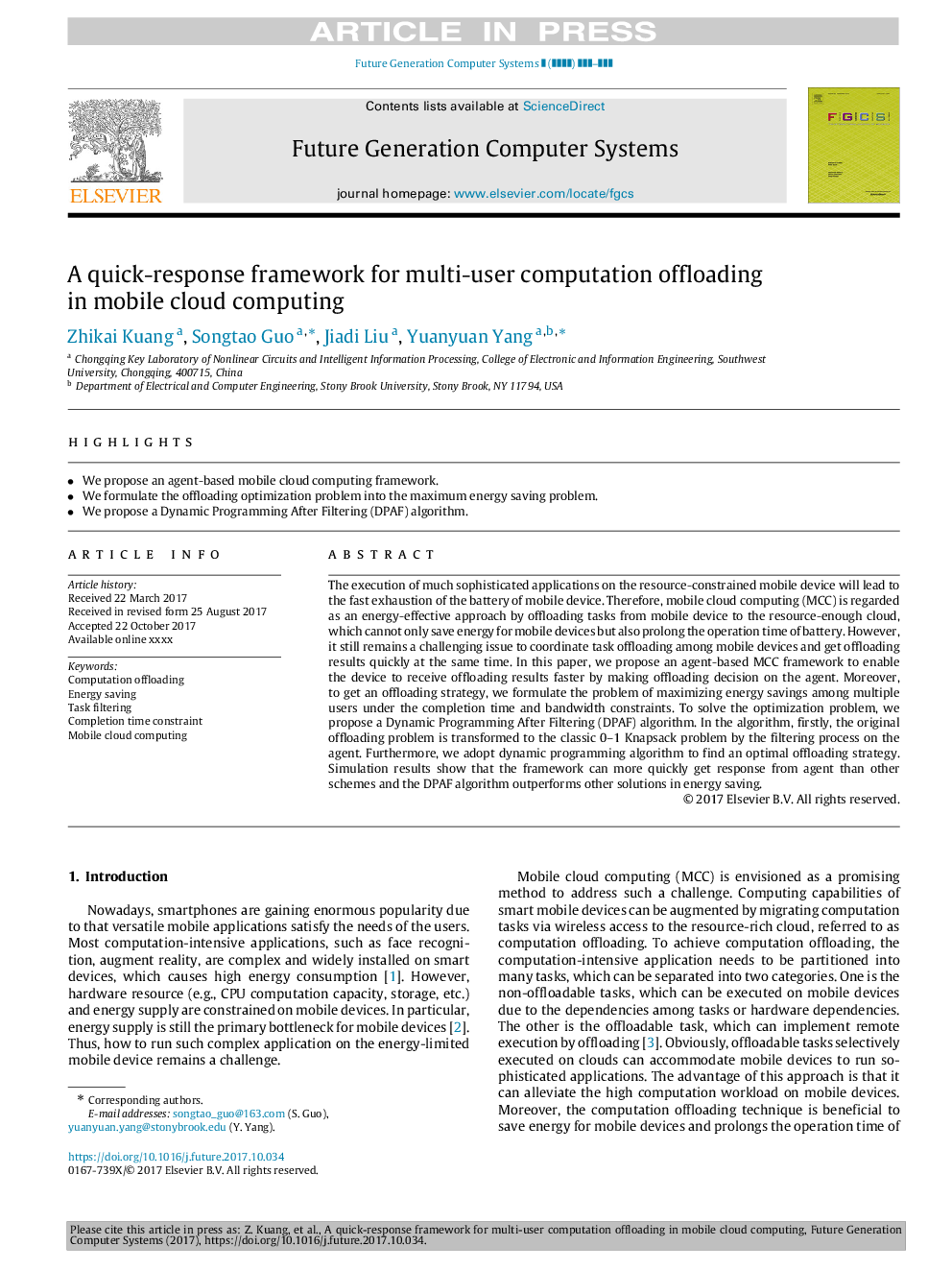ترجمه فارسی عنوان مقاله
یک چارچوب پاسخ سریع برای تخلیه محاسبات چند کاربره در محاسبات ابری تلفن همراه
عنوان انگلیسی
A quick-response framework for multi-user computation offloading in mobile cloud computing
| کد مقاله | سال انتشار | تعداد صفحات مقاله انگلیسی |
|---|---|---|
| 155943 | 2018 | 11 صفحه PDF |
منبع

Publisher : Elsevier - Science Direct (الزویر - ساینس دایرکت)
Journal : Future Generation Computer Systems, Volume 81, April 2018, Pages 166-176
ترجمه کلمات کلیدی
تخلیه محاسباتی، ذخیره انرژی، فیلتر کردن کار، محدودیت زمان تکمیل، محاسبات ابری موبایل،
کلمات کلیدی انگلیسی
Computation offloading; Energy saving; Task filtering; Completion time constraint; Mobile cloud computing;

